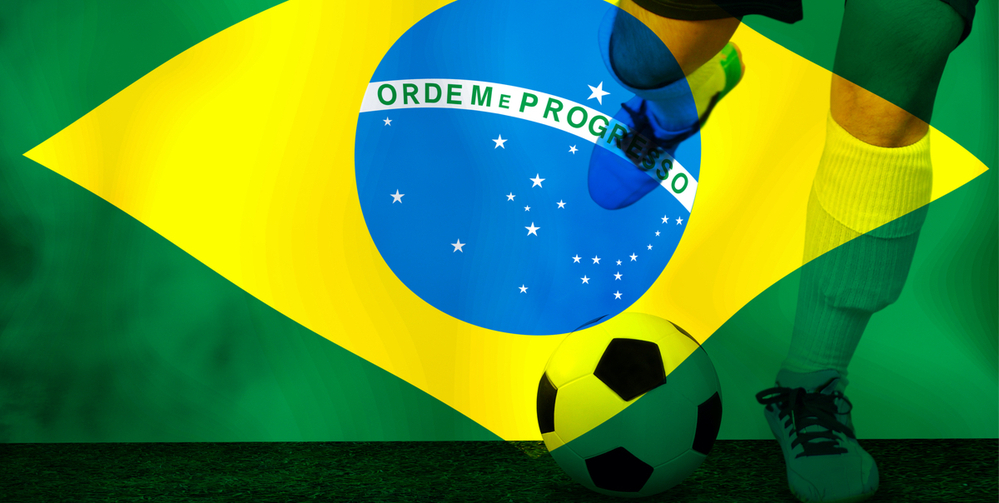Zona de Azar Brasil – Report: Impact of Online Gambling on Brazil’s Economy

 Brazil.- October 30, 2024 www.zonadeazar.com The legalization of online gambling in Brazil has had a negative impact on the financial and mental health of consumers, according to a report by Santander’s corporate and investment banking division. However, it also cites conflicting data suggesting that household finances are improving.
Brazil.- October 30, 2024 www.zonadeazar.com The legalization of online gambling in Brazil has had a negative impact on the financial and mental health of consumers, according to a report by Santander’s corporate and investment banking division. However, it also cites conflicting data suggesting that household finances are improving.
Flutter Brazil’s Acquisition of NSX
The report, published on October 22, blames the slow and prolonged legislative process surrounding online gambling for the rise in betting in Brazil.
“This seven-year gap between legalization and regulation of online gambling has led to unchecked growth,” said Santander.

“According to various studies and surveys conducted in Brazil and abroad mentioned in this report, online gambling significantly increased after legalization. The impact on the financial health of the population has been mostly negative, especially among vulnerable households.”
As authorized online betting prepares for its launch on January 1, 2025, it has faced backlash from figures in both the public and private sectors. Criticism appears to stem from a controversial study dating back to June, suggesting that frequent bettors have sacrificed money meant for food and medicine to gamble.
Despite the small sample size (1,337 surveyed consumers) and the controversial results, the study, conducted by the retail industry trade association Sociedade Brasileira de Varejo e Consumo (SBVC), received significant media coverage.
Since this article’s publication, politicians have campaigned for restrictions or extensions, arguing that these measures are to protect vulnerable groups from excessive gambling.
These measures include calls to ban credit card usage for gambling and to prevent those receiving financial assistance from betting altogether.
The latest measure is a bill to ban gambling entirely, which was introduced in the Senate on October 21. President Lula of Brazil is expected to address these issues in the coming weeks before the market launch.
Conflicting Data Suggest Household Finances Have Improved in Recent Months
Santander highlights a study from the Brazilian Foreign Trade Chamber (CNC), stating that 1.3 million people defaulted due to online gambling in the first half of this year, failing to meet their loan conditions.
Santander’s report references other data from Brazil’s National Bank (BCB), showing faster-than-average market growth in personal loans not earmarked for specific needs, taken between January 2018 and July 2024 (140.4% versus 126.2%). However, this cannot be specifically linked to online gambling.
However, Santander says it is uncertain whether the rise of online gambling has negatively impacted household financial health.
“Overall, according to Brazilian financial system data, the signals are mixed. It is hard to conclude if the increase in online gambling has been detrimental to household financial health so far. Still, we note that CNC published a study in September 2024, indicating that, in the first half of 2024, 1.3 million people were in default due to online gambling,” it stated.
The conflicting data presented by the bank indicate that delinquent loans (those unlikely to be fully paid or facing payment delays) have improved among low-income households. This data, it said, seems to reflect positive results from low inflation, a healthy job market, and social benefits.
The bank expects net betting revenues in Brazil to represent between 0.6% and 2.1% of Gross Domestic Product (GDP) in 2024. It stated that this will range between 1% and 3.3% of household consumption in 2024.
However, if player winnings are excluded, the betting volume is expected to represent between 0.2% and 0.3% of Brazil’s estimated GDP for 2024 and between 0.3% and 0.5% of total household consumption.
Legal Tax Revenues Could Partially Offset the Financial Impact of Betting in Brazil
The launch of the legal betting market is expected to partially offset some of the harmful impact that gambling has had on Brazilian consumers, as it is projected that the government will collect between R$ 3 billion and R$ 3.4 billion in tax revenue in 2024 and R$ 5 billion to R$ 10 billion in 2025.
The bank also cites the SBVC study, which notes that the vast majority of bettors belong to Brazil’s middle and upper-middle classes (54% and 33%, respectively). However, only 8% of the lower or working class engages in sports betting.
The bank stated that, based on this data, it expects gambling to influence consumer spending in retail, consumer goods, financial institutions, education, and healthcare.
“It seems more likely that gambling will impact discretionary services (leisure and entertainment) and goods (clothing, footwear, and accessories) among lower-income groups, especially men,” the report notes.
Original in English: STAR_ Impact of Online Gambling on Brazilian Economy and Sectors
Edited by: @_fonta www.zonadeazar.com